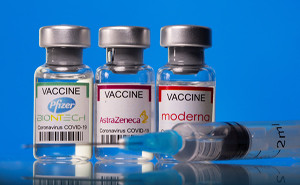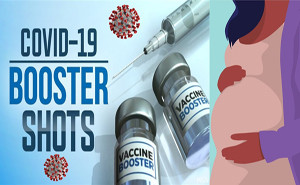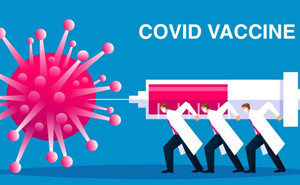Coronavirus-vaccine-updates
Vaccine Journal: Published: February, 2024A multinational Global Vaccine Data
Network (GVDN) cohort study of 99 million vaccinated individuals.This study aimed to evaluate the
risk of adverse events (13 medical conditions) of special interest (AESI)
following COVID-19 vaccination from 10 sites across 8 countries. Most vaccine
recipients were in...
Obstetrics and Gynecology Journal: Published in September, 2022Vaccination against coronavirus
disease 2019 is safe and effective at preventing illness, including hospitalization
and death due to severe acute respiratory syndrome coronavirus 2 (SARS-CoV-2) infections,
and booster and additional primary dose COVID-19 vaccinations increase
protec...
The New England Journal of Medicine
TAKE-HOME MESSAGE
This retrospective study evaluated
the effectiveness of the Pfizer (BNT162b2) COVID-19 vaccine in preventing
reinfection in patients who had recovered from COVID-19.
A total of 149,039 patients who had
recovered from COVID-19 were included, and, of these, 56% were subsequently...
Effectiveness
of Maternal Vaccination with mRNA COVID-19 Vaccine during Pregnancy against
COVID-19–Associated Hospitalization in Infants Aged
American Journal of Obstetrics and Gynecology:
Key findings
Vaccine-generated antibodies were
present in umbilical cord blood and breastmilk after maternal vaccination.
Pregnant and lactating women
elicited comparable vaccine-induced humoral immune responses with nonpregnant
controls and generated higher antibody titers than those o...
Coronavirus (COVID-19) Vaccine Update:
Take Home Message:
A single booster dose of the Pfizer
COVID-19 vaccine can be given to 5- to 11-year-olds to provide continued
protection against COVID-19., the U.S. Food and Drug Administration announced.
The third shot can be given at
least five months after healthy children complete the two...
Pre-Clinical Phase
Collects data to support feasibility and safety
Involves iterative animals testing such as mice or
monkeys to see if it produces an immune response.
Evaluates toxic and pharmacological effects
Normally occurs before human testing can begin
Sponsored content...
The FDA announced it had amended
the emergency use authorizations for both the Moderna and Pfizer-BioNTech
vaccines allowing for a single booster dose for all individuals 18 years of age
and older after completion of primary vaccination with any of the approved COVID-19
vaccines.The CDC also recommends that
adults should get a booster at least...
Booster interval and age updatedThe U.S. Food and Drug
Administration (FDA) and CDC authorizing the use of a Pfizer-BioNTech & Moderna COVID-19 Vaccine to shorten the time
between the completion of a primary series of the 2 vaccines and a booster dose
to at least 5 months after completion of the primary vaccination series for
individuals 12 yea...
SummaryWhat is already known about
this topic?Pregnant women with COVID-19 are
at increased risk for severe illness and adverse birth outcomes, yet many
remain reluctant to be vaccinated.What is added by this report?In a retrospective cohort of
>40,000 pregnant women, COVID-19 vaccination during pregnancy was not
associated with preterm bir...
The World Health Organization (WHO)
says early evidence suggests the omicron variant may be spreading faster than
the highly transmissible delta variant but brings with it less severe
coronavirus disease though it’s too early to make firm conclusions. Omicron Now in 57 Countries, Could Have Major Impact on Pandemic, Says
WHO.· New
corona...
A nationwide Spanish
cross-sectional study was conducted. Study included patients with cutaneous
reactions within 21 days of any dose of the approved vaccines at the time
of the study.Published in the British Journal of Dermatology
Evaluation of 405 cutaneous reactions after
severe acute respiratory syndrome coronavirus 2 (SARS-CoV-2) va...













